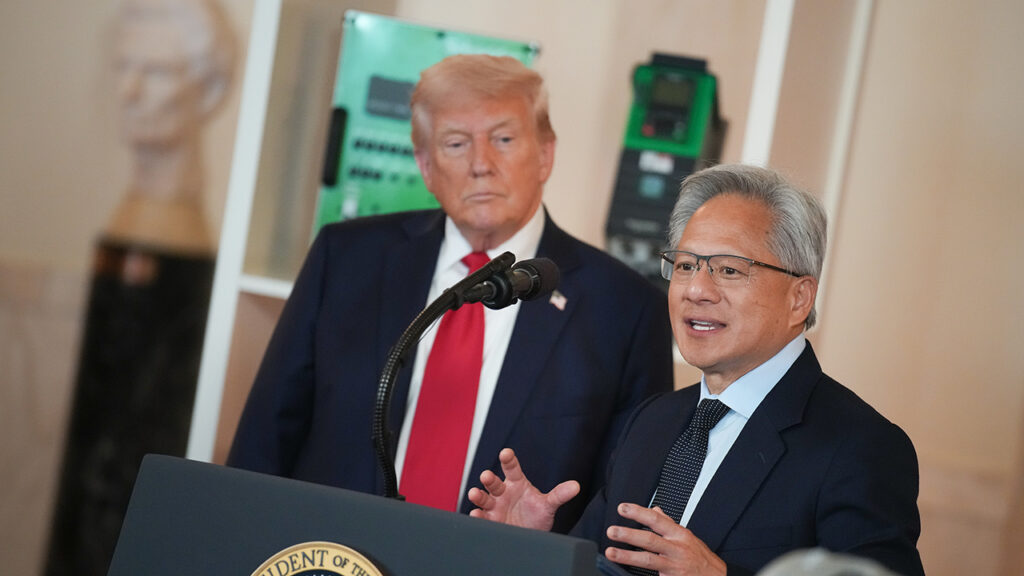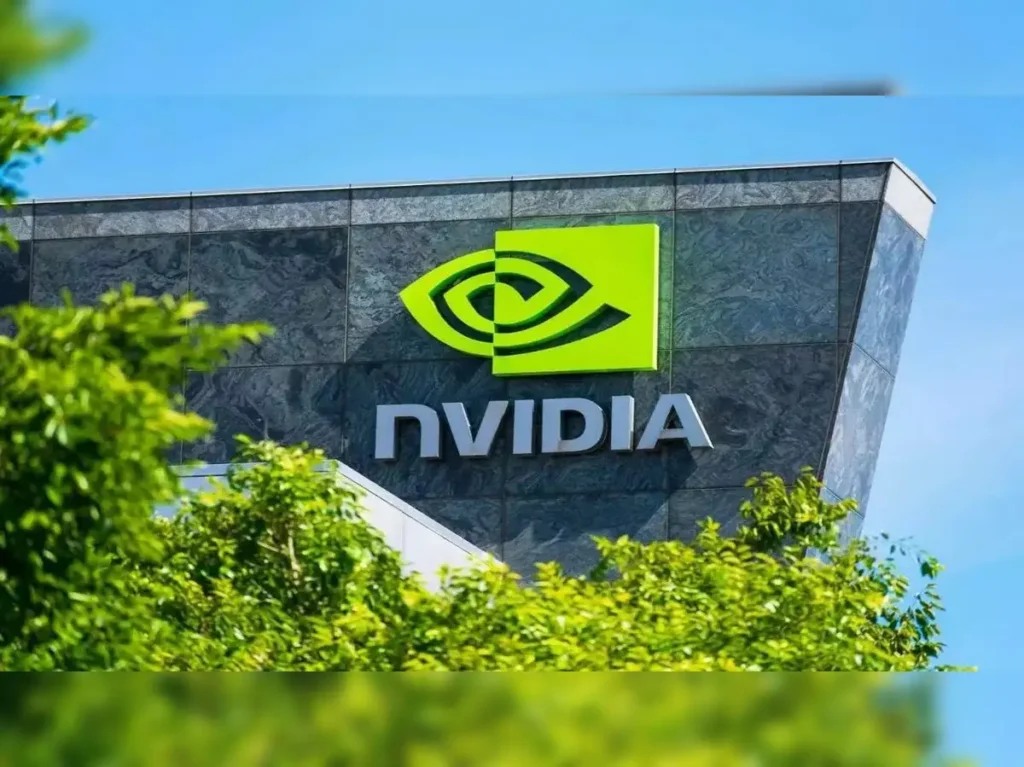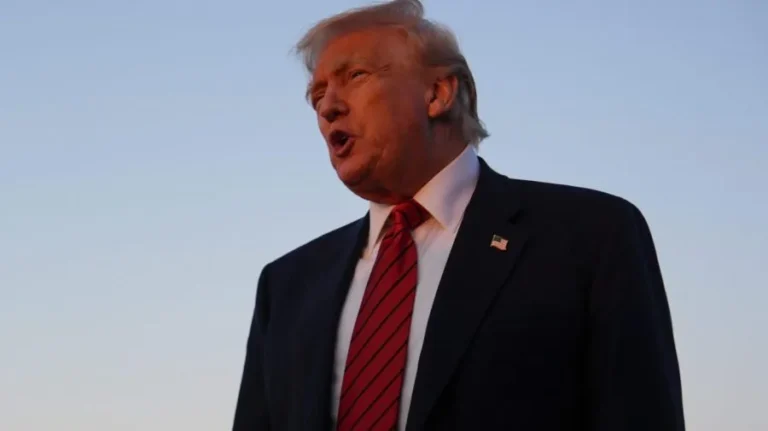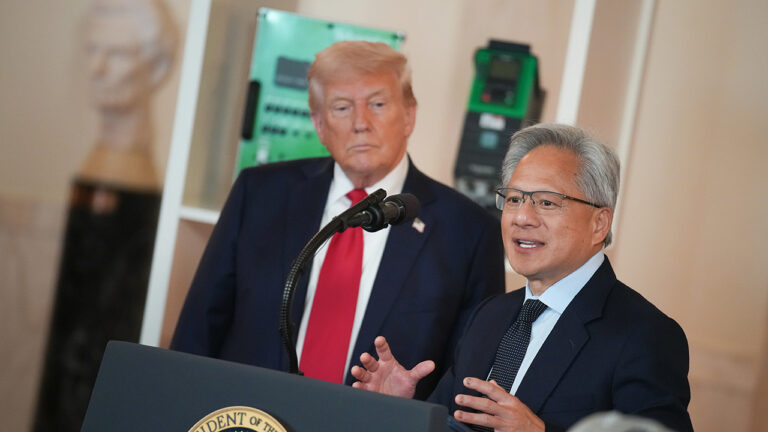
WASHINGTON, DC - APRIL 30: U.S. President Donald Trump (L) listens as Nvidia CEO Jensen Huang speaks in the Cross Hall of the White House during an event on "Investing in America" on April 30, 2025 in Washington, DC. Trump was joined by CEOs to highlight companies and their investments in the United States during the event. (Photo by Andrew Harnik/Getty Images)
A Bold Stand by Nvidia – In a strong statement this week, Nvidia declared that its AI and GPU chips do not contain any hidden backdoors, directly responding to increasing pressure from US federal authorities regarding chip traceability. The tech giant also pushed back against a proposed mandate requiring real-time location tracking of semiconductor components — a move Nvidia believes could have serious implications on privacy, innovation, and global competitiveness.
What Are Chip Backdoors and Why Do They Matter?

A backdoor in a chip refers to hidden access points or vulnerabilities that can be exploited by malicious actors — often for spying, manipulation, or data theft. In the context of growing geopolitical tensions and concerns about foreign interference, regulatory bodies in the US have increased scrutiny on chip makers.
However, Nvidia’s assurance that their chips are “clean and transparent” comes at a critical time when AI hardware is powering everything from self-driving cars to national defense systems.
🏛️ US Government Pushes for Location Verification

The US government has been exploring legislation that would enforce mandatory location verification for chip components — a move aimed at preventing tampering or unauthorized movement of sensitive technology. But Nvidia warns that such requirements could:
- Create logistical nightmares in the global supply chain
- Invade proprietary designs and violate trade secrets
- Slow down innovation in high-performance computing
- Compromise customer privacy and data sovereignty
🛡️ Nvidia’s Security Measures
Nvidia stated that its internal protocols already ensure high levels of chip security. This includes:
- Rigorous internal audits of firmware and architecture
- Zero-trust architecture models
- Secure chip fabrication facilities in geopolitically stable regions
- Close compliance with existing US export controls and cybersecurity standards
📉 Implications of Overregulation
Industry analysts caution that overregulating chipmakers like Nvidia could stifle the competitive edge of the US semiconductor industry — especially as it races against China, Taiwan, and South Korea in the AI hardware war.
Mandating live-tracking of chips from fab to deployment may introduce bureaucratic friction, raise manufacturing costs, and discourage foreign investment.
🌍 Global Chip Politics and Trust
As global AI adoption grows, trust in chipmakers is essential. Nvidia’s transparency campaign appears to be a preemptive move to maintain leadership, not just in performance but in regulatory trust and ethical manufacturing.






